Pakistan’s IDPs reach record one million
Some 95,000 families are internally displaced and struggling in North Waziristan amid Operation Zarb-e-Azb.

Pakistan’s government announced the start of a full-scale security operation on June 15 in North Waziristan in the Federally Administered Tribal Areas (FATA) to take on rebel strongholds near the Afghan border.
Dubbed “Zarb-e-Azb”, the ongoing military operation was launched against Taliban fighters and their allies in the Pakistani tribal areas. According to the United Nations, as of August 2014 the estimated number of displaced people is now more than one million, comprising about 95,000 families.
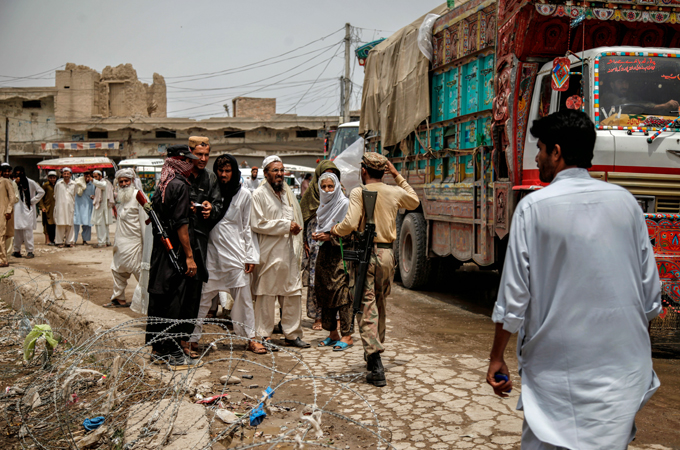 [Sara Farid/UN]
[Sara Farid/UN]
The majority of the displaced families have sought refuge in Bannu, with some moving to DI Khan, Lakki Marwat, Kohat Karak, Hangu and Charsadda in Khyber Pakhtunkhwa. Official reports have also confirmed the movement of internally displaced people into Sindh province. Humanitarian aid efforts by the government and relief groups are ongoing.
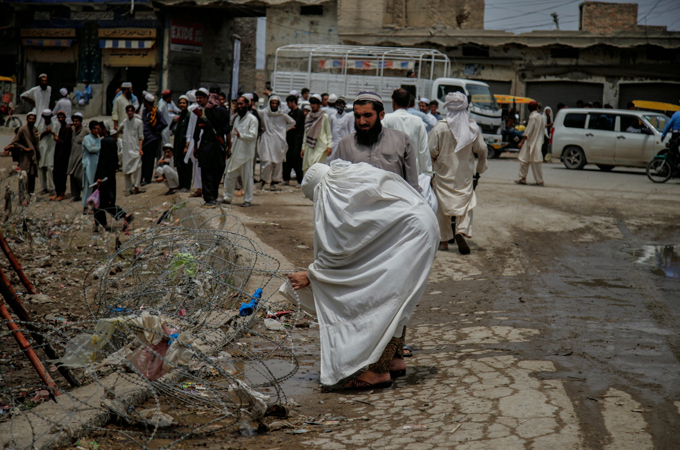 [UN/Sara Farid]
[UN/Sara Farid]
A displaced woman from North Waziristan tries to free her burqa that was entangled in barbed wire near the distribution camp queue.
The FATA Disaster Management Authority (FDMA) has established a camp for displaced families from NWA. The camp has been set up in Bakka Khel with a capacity to accommodate 200,000 people.
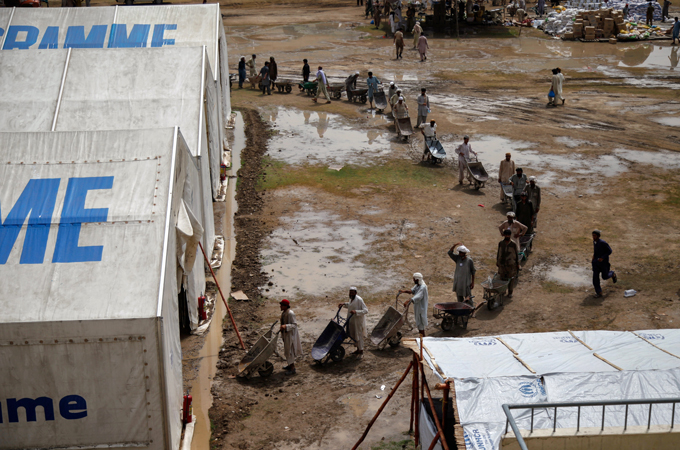 [UN/Sara Farid]
[UN/Sara Farid]
Displaced men wait in line up to receive rations, including food, tents, cash, and other aid at a sports complex, turned into an aid-distribution centre by Pakistani authorities.
So far, only a few families have opted to reside in the camp. The reasons for the low number of residents are a lack of privacy, perceived security concerns, and a lack of facilities such as running water and electricity. As a result, most families have preferred to stay with relatives or friends in rented houses.
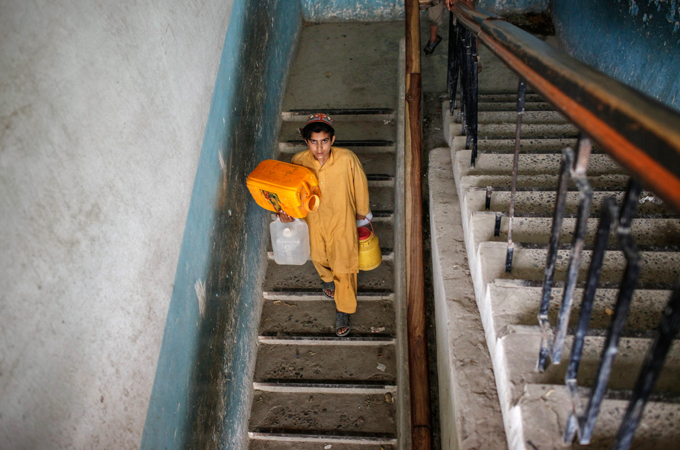 [UN/Sara Farid]
[UN/Sara Farid]
A boy walks down the school stairs to collect water from a hand-pump nearby.
Some families have chosen to stay at schools in Bannu, which have been converted into temporary homes. The majority of families have refused to live in the government set-up camp in Bakakhel.
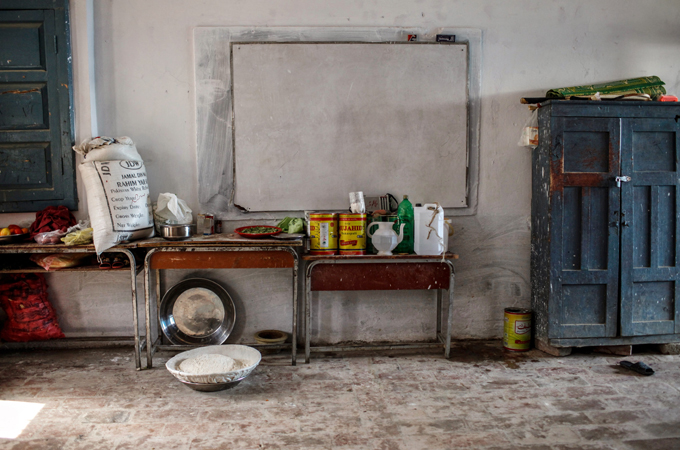 [UN/Sara Farid]
[UN/Sara Farid]
A Grade 3 classroom operates as a makeshift kitchen for displaced families. In Bannu, displaced families are occupying about 110 schools in the city.
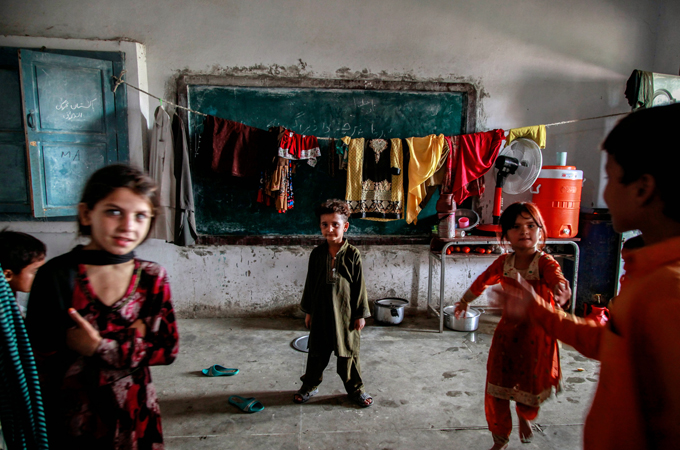 [UN/Sara Farid]
[UN/Sara Farid]
Displaced children play in a classroom in Bannu.
Humanitarian aid partners, including the United Nations and other non-governmental organisations, are supporting the government in providing life-saving assistance to the affected areas by providing emergency health kits and food packages.
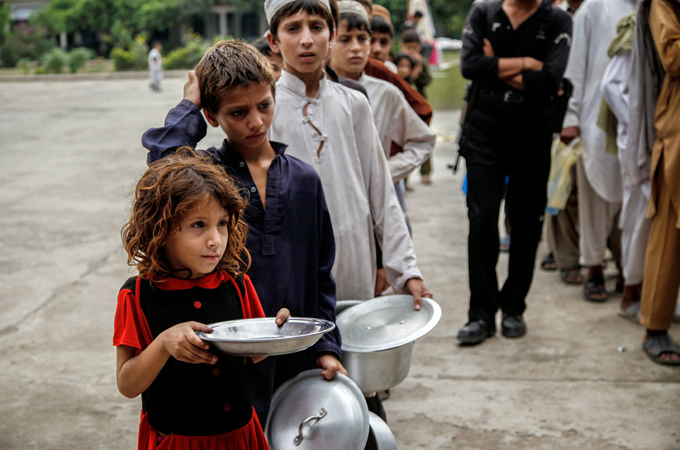 [UN/Sara Farid]
[UN/Sara Farid]
Ten–year-old Kiran holds her plate as she waits in a queue at a free food distribution point set up by a humanitarian wing of a political party for displaced people in Bannu, Pakistan.
The government has established six relief camps for internally displaced people, of which three distribution points are situated in Bannu, two in DI Khan, and one in Tank. Food rations per family include flour, cooking oil, lentils, dates and tea.
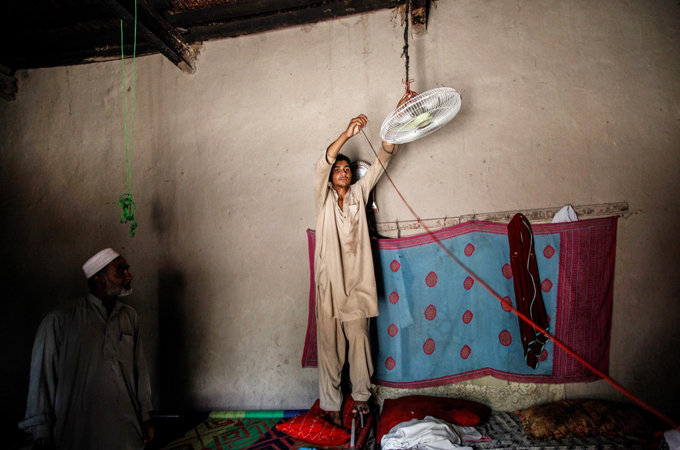 [UN/Sara Farid]
[UN/Sara Farid]
A boy fixes a fan in an under-construction house provided to them by relatives in Bannu.
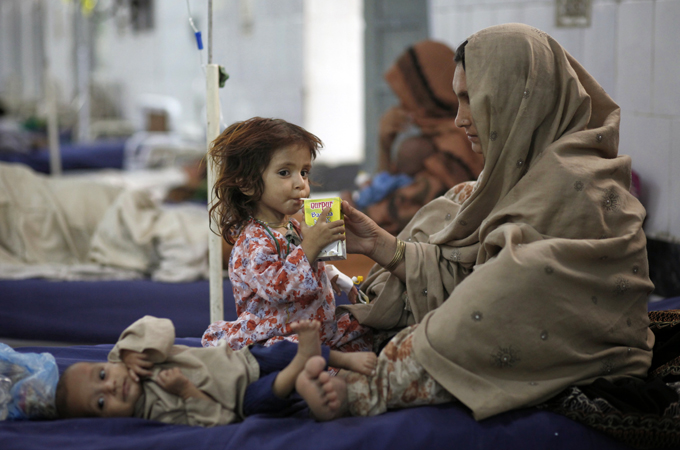 [UN/Sara Farid]
[UN/Sara Farid]
A mother helps her daughter suffering from gastroenteritis drink juice at a government hospital in Bannu, where a state-of-emergency has been declared.
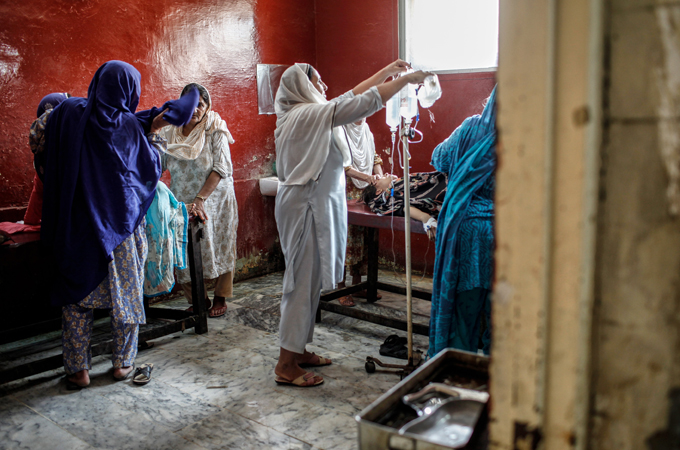 [UN/Sara Farid]
[UN/Sara Farid]
A nurse prepares two women for child birth in a makeshift delivery room at the women and children hospital in Bannu. Many pregnant women faced birth complications as they walked from North Waziristan to Bannu.
Since 2008, almost five million people from Khyber Pakhtunkhwa and FATA have been registered as internally displaced people, uprooted in various waves because of military operations or the deterioration of security caused by non-state armed actors.
Latest UN figures show that 1,002,002 people are still displaced and in need of humanitarian assistance and support.